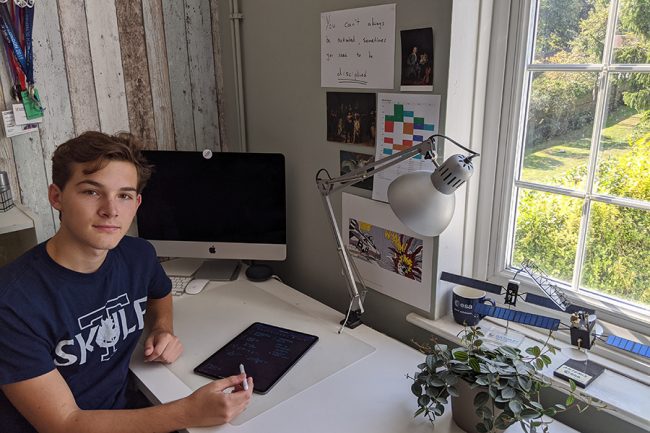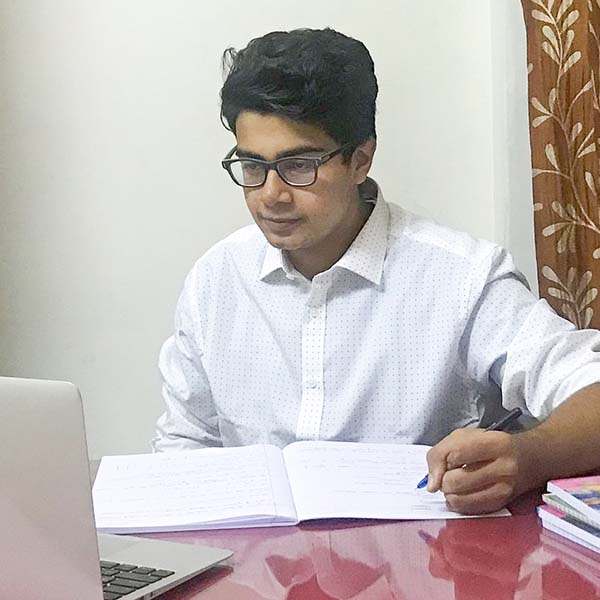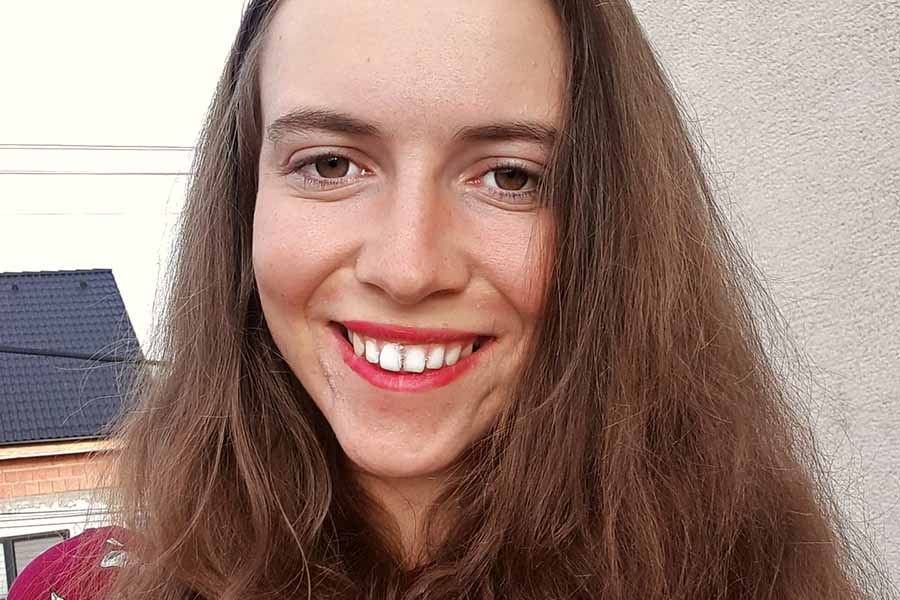
September 25, 2020
By Tyler Irving
It’s a Back-to-Skule™ like no other, but this year’s Pearson Scholars are taking it all in stride.
Named after Canada’s 14th prime minister, Nobel Peace Prize laureate and U of T graduate Lester Bowles Pearson, the Pearson Scholarships recognize exceptional academic achievement, creativity, leadership potential and community involvement among international students. The award covers tuition, books and incidental fees for four years.
This year, three Pearson Scholars chose to join The Edward S. Rogers Sr. Department of Electrical & Computer Engineering (ECE), all of whom are beginning their studies from home, taking advantage of the Faculty of Applied Science & Engineering’s remote access guarantee.
Via email, the three students spoke to writer Tyler Irving about their experiences so far.
Luca Anthony Franchi, Year 1 ElecE — London, U.K.
Franchi was born in London, U.K. to parents who had immigrated from The Netherlands and Italy. His love of mathematics and science is strong, but he says that for him engineering is about more than the technical aspects.
“I chose to study engineering because I felt it was the best and most interesting way to make a difference in the world,” he says. “Applying my knowledge to help people and bring about genuine, tangible change seems so special to me.”
Franchi says he chose U of T Engineering for its human-centred approach. “It is an institution that cares about the student as a whole, and part of a university that values what is done outside of the classroom,” he says. “It is an environment to achieve great things.”
His original plan was to move to Toronto, a journey of more than 5,700 km that he describes as a “leap of faith” considering that he has never visited the city before. Franchi is studying remotely for now, but he says he is keen to come to Toronto as soon as it is safe to do so.
“I’m very grateful to be able to make a start even if not in person,” he says. “What I’m most looking forward to about first year is meeting all kinds of new people as the next chapter of my life begins.”
Priyansh Parakh, Year 1 CompE — Jodhpur, India
Parakh attributes some of his passion for science and engineering to his parents. Both were physicians, specialists in pediatric neurology and obstetrics/gynecology, and always encouraged him to follow his dreams. He is also inspired by his elder sister, who has autism.
“I have always wanted to work in a field that can provide me with the means and skills to improve the quality of lives for people, especially the underprivileged and people with disabilities,” he says.

“I chose U of T because of its global community, vast alumni network and the tremendous number of academic and co-curricular opportunities that it provides, including the PEY Co-op program and the numerous research opportunities available to undergraduates.”
Parakh describes the remote access guarantee as “the best news that came along my way this year.”
“I am beyond impressed by the amount of hard work that has been put in by the Faculty to plan and to execute one whole semester online, synchronously or otherwise,” he says. “I find this initiative very reassuring and plan to make the most out of it.”
Currently Parakh is keeping an open mind about what he wants to do after graduation.
“I would like to go to graduate school and pursue my studies in an interdisciplinary field, though at this point I have no clue as to what that field may be,” he says. “But I know that over the next four years I will collaborate with, be inspired by and contribute to the wonderful academic environment at U of T. I am certain that these experiences will prepare me well.”
Diana Virgovičová, Year 1 CompE — Pezinok, Slovakia
Virgovičová has been excited about engineering for as long as she can remember. While still in high school, she discovered a new type of photocatalyst using quantum chemistry software, an achievement that earned her a Diploma of Excellence at the Stockholm Junior Water Prize.

“This proved to me that engineering is one of the fields that can improve and save millions of lives,” she says.
Virgovičová says she chose U of T Engineering because of its excellence in education as well as the diversity of the city. “Studying at U of T means meeting students from all the possible cultures,” she says. “Speaking with them is almost like making trips around the world every day.”
While she won’t be able to have those conversations in person yet, Virgovičová says she plans to make the most of the opportunities for interaction available via her online courses. She also plans to join some clubs that are making their activities available online.
“I am looking forward to working in teams and making new like-minded friends,” she says. “My dream is to use my degree to solve some of the most challenging global problems through modern technology. I also aim to build and support platforms that help women and girls from developing communities gain education and empowerment.”
This story originally appeared on U of T Engineering News.
With files from Matthew Tierney
More information:
Jessica MacInnis
External Relations Manager
The Edward S. Rogers Sr. Department of Electrical & Computer Engineering
416-978-7997; jessica.macinnis@utoronto.ca